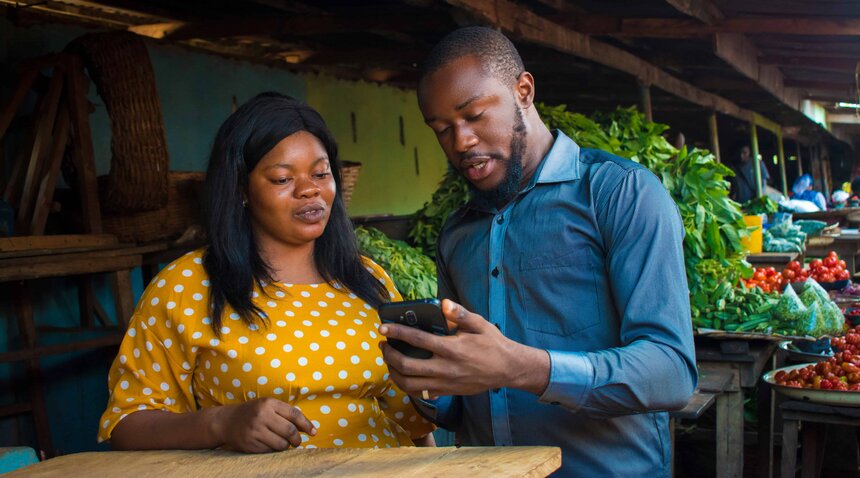Why We Invested in FairMoney: Rebooting Banking in Nigeria

If you ask someone in Lagos if they have a bank account, more likely than not, the answer will be “yes.” You’ll probably get the same answer if you ask if they save with their bank — even though they won’t get a reasonable rate on their savings that will help their money grow. But when it comes to accessing credit from their banks, the overwhelming odds are that answer will be “no.”
As in many emerging markets, banking in Nigeria is broken. Around 40 percent of the adult population — around 40 million individuals — have a bank account and a majority save. If you look at large urban areas, such as Lagos, these numbers are much higher. However, only 2 million account holders are considered a good enough risk by their banks to get a loan. Savings deposits rates hover around 4 percent, when inflation usually falls above 11 percent. And all kinds of hidden costs, such as account maintenance fees, ATM fees, and SMS charges, among others, eat away whatever value remains.
With the advent and democratization of new technologies, bank customers all over the world — including in Nigeria and elsewhere in Africa — are demanding more from their financial services providers. They want more value for lower costs.
A new breed of digitally-native banks is rising to the challenge. Those likely to win will consider high quality, low cost, and full transparency to be their offerings table-stakes. They will combine an obsessive drive to understand the lives of their customers with the ambition to become their financial mentor and guide. An embedded presence in their day-to-day lives, which is trusted and conferred with in times of need.
This is the kind of bank the founders of FairMoney are building. It is a lofty goal, but Laurin, Matthieu, and Nicolas have a good chance at reaching it. They balance their impact ambition with a rare ability to execute fast, while learning along the way. Starting with credit, they have scaled to more than 200,000 users and disbursed over $21 million in little over 18 months. The team launched payments recently, and other products like savings and insurance are in the pipeline. Nigeria is the first market and the focus in the near term, but the vision is to build a product that is relevant to emerging market consumers in multiple geographies.
Building a digital bank is nothing if not challenging. Those challenges only grow more prominent in a market like Nigeria, where macro-economic woes affect everything from customers’ discretionary spend to the ability to raise wholesale capital. Regulatory uncertainity makes the operarting environment even more complex. The FairMoney team believes they have unlocked the foundation to tackle these obstacles and bring better banking to millions. We agree.
Flourish is an evergreen, early-stage venture fund investing globally in entrepreneurs whose innovations help people achieve financial health and prosperity. Spun out of Omidyar Network in 2019 with an existing portfolio of $200 million, Flourish received a new commitment of $300 million from Pam and Pierre Omidyar, the founder of eBay. Flourish invests in a number of themes in fintech, insurtech, regtech and other technologies, as well as supports nonprofit organizations, that empower people and help foster a fair, more inclusive economy. Flourish is managed by a global team with offices in Silicon Valley, Washington DC, London, and India. For more information visit www.flourishventures.comor join our community through Twitter, LinkedIn, Instagram, and Medium.